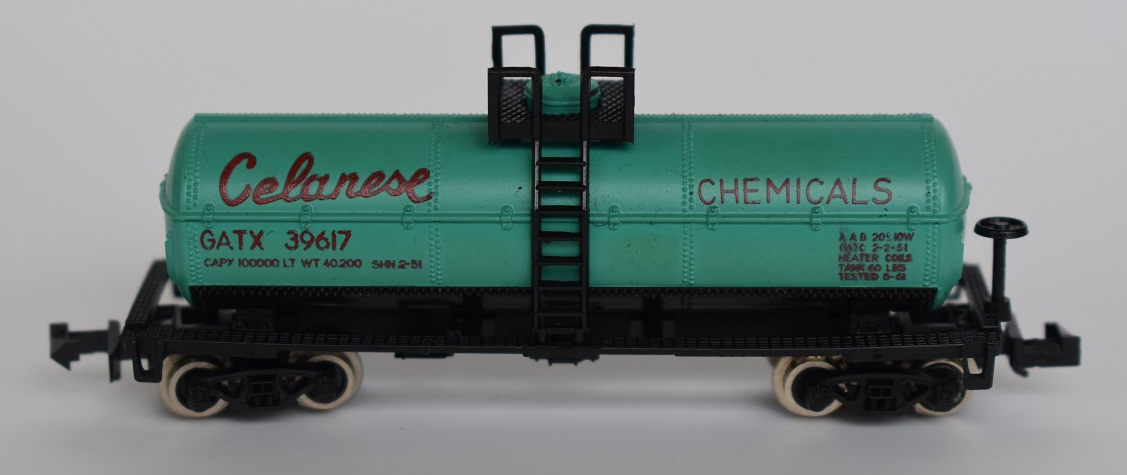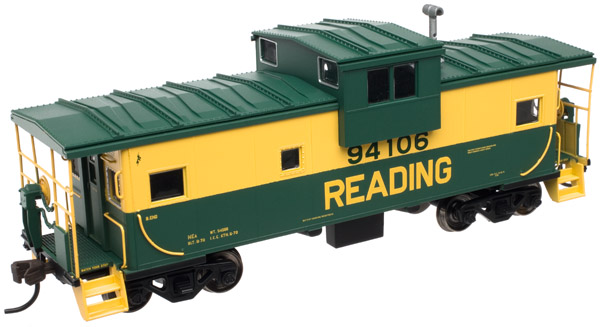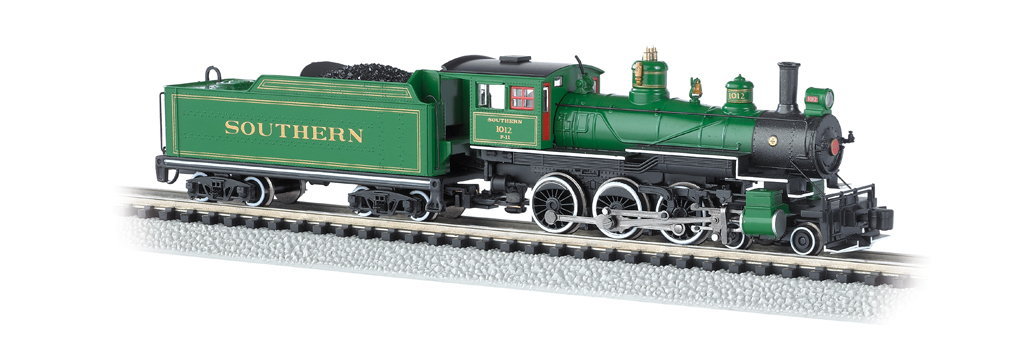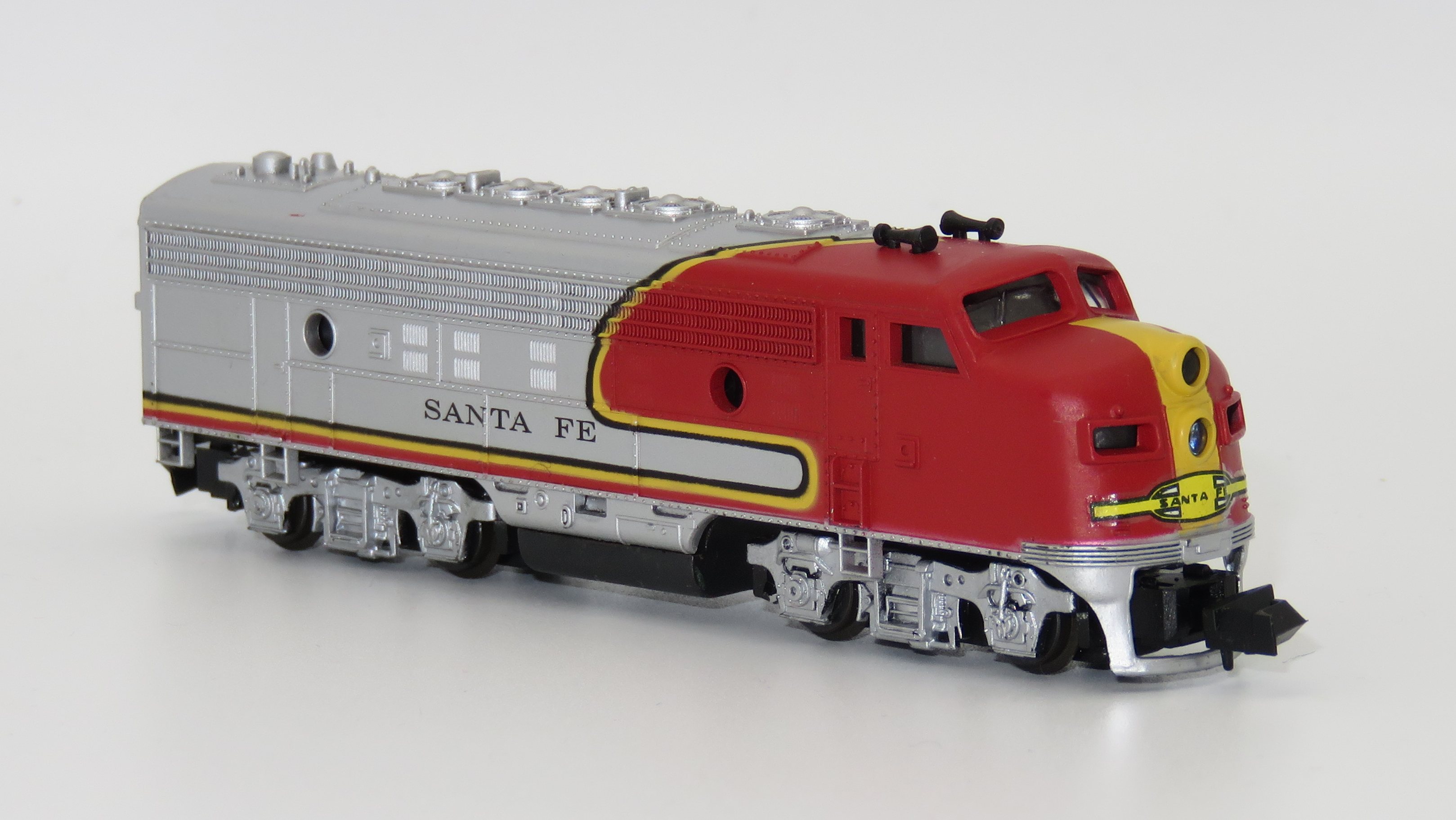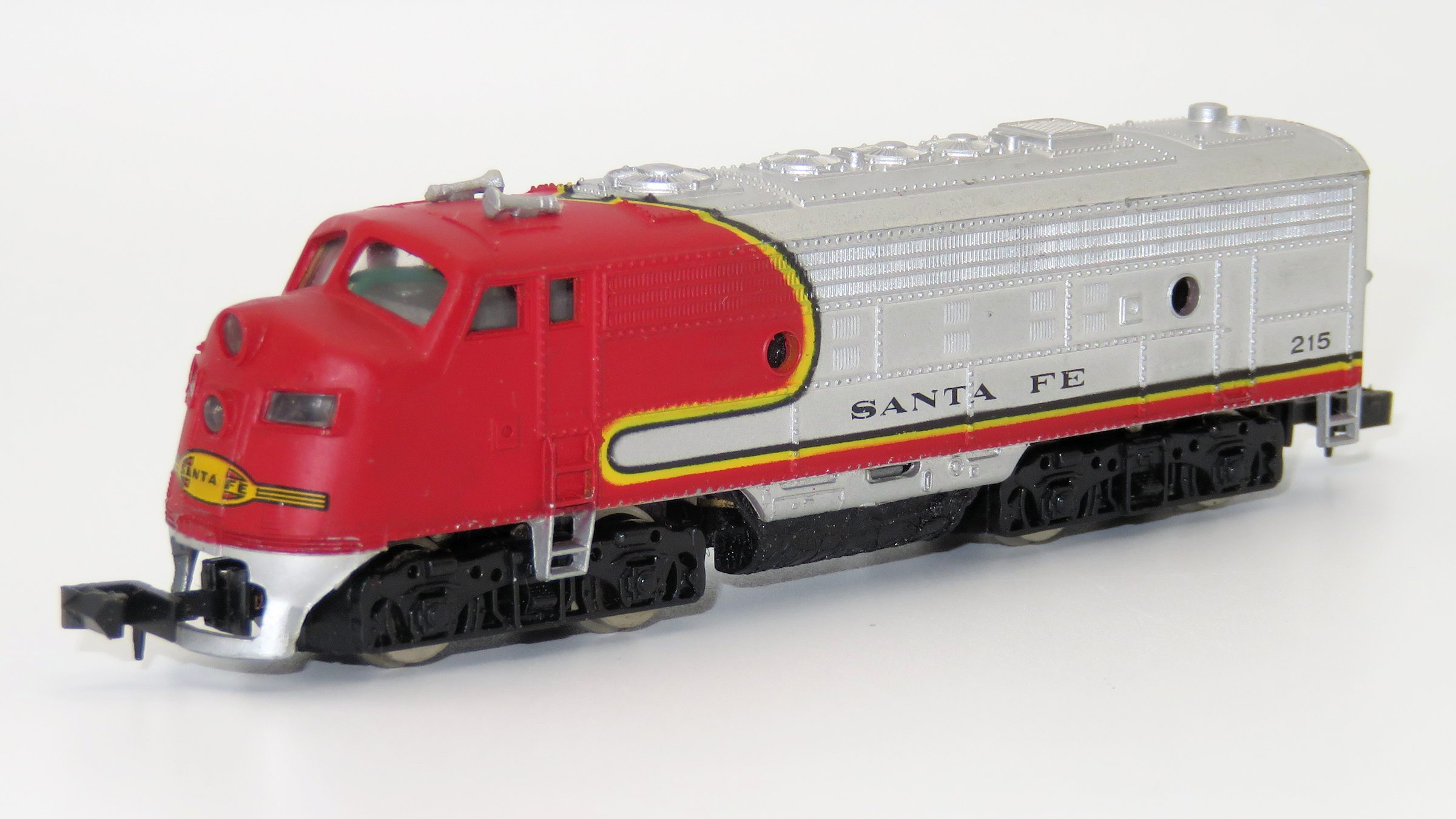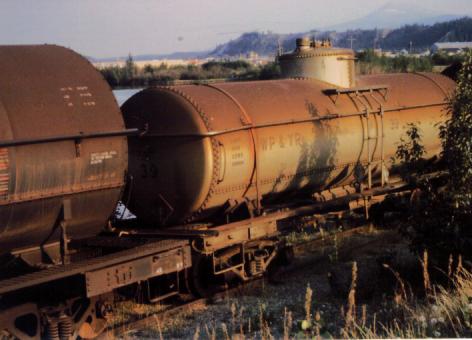Model Information: This body style dates to the 1970s. Apparently this body style was originally made for Atlas to replace their earlier tank cars but, was used for Life-Like releases. Life-Like lists four different road names in their 1977 price list.
Prototype History: Single Dome tank cars are a railroad staple. They have been around since the first half of the 20th century. This length car can handle about 10,000 gallons. These railcars carry a wide array of commodities, including liquid fertilizers, chemicals, fuel oils and asphalt, and food-grade oils. Tank cars can be pressurized or non-pressurized, insulated or non-insulated. Single dome cars carry only a single commodity at once. Food-service tank cars may be lined with stainless steel, glass, or plastic. Tank cars carrying dangerous goods are generally made of different types of steel, depending on the intended cargo and operating pressure. They may also be lined with rubber or coated with specialized coatings for tank protection or product purity purpose. The tank heads are also stronger to prevent ruptures during accidents.
One common version is the ACF Type 27 jacketed tank car with expansion dome which was in common use by many railroads and oil companies.
One common version is the ACF Type 27 jacketed tank car with expansion dome which was in common use by many railroads and oil companies.
Road Name History: Celanese was founded in 1918 in New York City as the American Cellulose & Chemical Manufacturing Company, initially producing fabrics for airplane manufacturing. They adopted the name “Celanese Corporation” in 1927 and began producing synthetic cellulose acetate fabrics and yarns for textile companies.
Celanese Corporation, also known as Hoechst Celanese, is a Fortune 500 global technology and specialty materials company with its headquarters in Irving, Texas, United States. The company is a leading producer of acetyl products, which are intermediate chemicals for nearly all major industries, and is the world's largest producer of vinyl acetate monomer (VAM).
Celanese's operations are primarily located in North America, Europe, and Asia. Its largest plant is in the Clear Lake area of Pasadena, Texas, United States the home to the world's largest acetic acid plant. In 2016, Celanese reported net sales of $5.4 billion.
The American Cellulose and Chemical Manufacturing Co. Ltd plant in Cumberland, Maryland was set up during World War I to produce cheaper fabric for airplane manufacturing. The plant location was chosen inland to protect against Zeppelin attacks. It was also situated in proximity to a ready source of water at the Potomac River and easy access to coal supplies and railroad lines. After a series of delays, actual production began in 1924 with a series of cellulose acetate commercial fabrics and yarns intended as alternatives to silk. The plant was closed in 1983, and was later torn down to provide a space for a new state prison.
From Wikipedia
Celanese Corporation, also known as Hoechst Celanese, is a Fortune 500 global technology and specialty materials company with its headquarters in Irving, Texas, United States. The company is a leading producer of acetyl products, which are intermediate chemicals for nearly all major industries, and is the world's largest producer of vinyl acetate monomer (VAM).
Celanese's operations are primarily located in North America, Europe, and Asia. Its largest plant is in the Clear Lake area of Pasadena, Texas, United States the home to the world's largest acetic acid plant. In 2016, Celanese reported net sales of $5.4 billion.
The American Cellulose and Chemical Manufacturing Co. Ltd plant in Cumberland, Maryland was set up during World War I to produce cheaper fabric for airplane manufacturing. The plant location was chosen inland to protect against Zeppelin attacks. It was also situated in proximity to a ready source of water at the Potomac River and easy access to coal supplies and railroad lines. After a series of delays, actual production began in 1924 with a series of cellulose acetate commercial fabrics and yarns intended as alternatives to silk. The plant was closed in 1983, and was later torn down to provide a space for a new state prison.
From Wikipedia
Brand/Importer Information:  Life-Like Products LLC (now Life-Like Toy and Hobby division of Wm. K. Walthers) was a manufacturer of model railroad products and was based in Baltimore, Maryland.
Life-Like Products LLC (now Life-Like Toy and Hobby division of Wm. K. Walthers) was a manufacturer of model railroad products and was based in Baltimore, Maryland.
It was founded in the 1950s by a company that pioneered extruded foam ice chests under the Lifoam trademark. Because ice chests are a summer seasonal item, the company needed a way to keep the factory operating year round. As model railroading was becoming popular in the post-war years, they saw this as an opportunity and so manufactured extruded foam tunnels for model trains. Over the years, Life-Like expanded into other scenery items, finally manufacturing rolling stock beginning in the late 1960s. At some point in the early 1970s, Life-Like purchased Varney Inc. and began to produce the former Varney line as its own.
The Canadian distributor for Life-Like products, Canadian Hobbycraft, saw a missing segment in market for Canadian model prototypes, and started producing a few Canadian models that were later, with a few modifications, offered in the US market with US roadnames.
In 2005, the company, now known as Lifoam Industries, LLC, decided to concentrate on their core products of extruded foam and sold their model railroad operations to Wm. K. Walthers.
In June 2018, Atlas and Walthers announced to have reached an agreement under which all Walthers N scale rolling stock tooling, including the former Life-Like tooling, will be purchased by Atlas.
Read more on Wikipedia and The Train Collectors Association.

It was founded in the 1950s by a company that pioneered extruded foam ice chests under the Lifoam trademark. Because ice chests are a summer seasonal item, the company needed a way to keep the factory operating year round. As model railroading was becoming popular in the post-war years, they saw this as an opportunity and so manufactured extruded foam tunnels for model trains. Over the years, Life-Like expanded into other scenery items, finally manufacturing rolling stock beginning in the late 1960s. At some point in the early 1970s, Life-Like purchased Varney Inc. and began to produce the former Varney line as its own.
The Canadian distributor for Life-Like products, Canadian Hobbycraft, saw a missing segment in market for Canadian model prototypes, and started producing a few Canadian models that were later, with a few modifications, offered in the US market with US roadnames.
In 2005, the company, now known as Lifoam Industries, LLC, decided to concentrate on their core products of extruded foam and sold their model railroad operations to Wm. K. Walthers.
In June 2018, Atlas and Walthers announced to have reached an agreement under which all Walthers N scale rolling stock tooling, including the former Life-Like tooling, will be purchased by Atlas.
Read more on Wikipedia and The Train Collectors Association.
Manufacturer Information: Mehano is a Slovenian toy manufacturer located in Izola, Slovenija. The company was founded as Mehanotehnika and was producing toys starting in June 1953. They first exhibited at the Nuerenberg Toy Fair in 1959. Mehano produced a number of different locomotives and rolling stock models for the North American market in the 1960s and 1970s. Companies such as Atlas and Life-Like imported a huge variety of their products. Generally they can easily be recognized as they are stamped "Yugosolavia" on the underframe. The company was formally renamed "Mehano" in 1990. Izola today is part of the country of Slovenia since the breakup of Yugoslavia.
Mehano filed for bankruptcy in 2008, but still continued to exist and operate. Since 2012, Mehano products are distributed by Lemke.
Mehano filed for bankruptcy in 2008, but still continued to exist and operate. Since 2012, Mehano products are distributed by Lemke.
Item created by: gdm on 2017-02-05 15:48:59. Last edited by gdm on 2023-03-08 09:39:40
If you see errors or missing data in this entry, please feel free to log in and edit it. Anyone with a Gmail account can log in instantly.
If you see errors or missing data in this entry, please feel free to log in and edit it. Anyone with a Gmail account can log in instantly.


